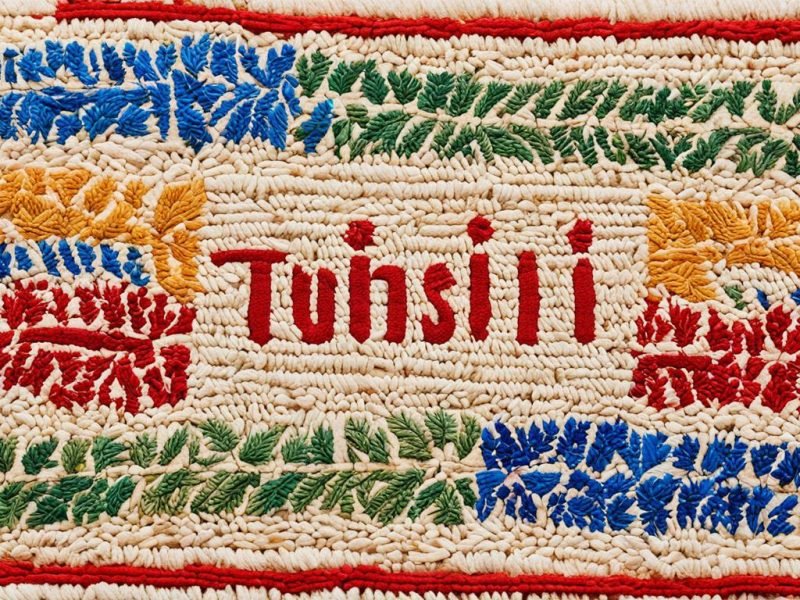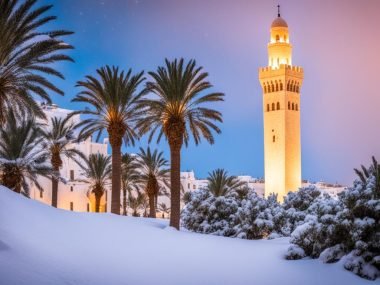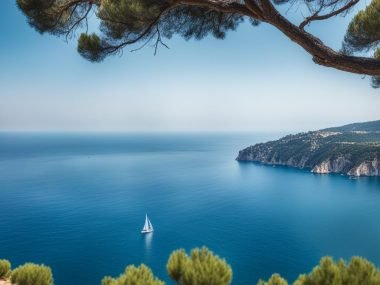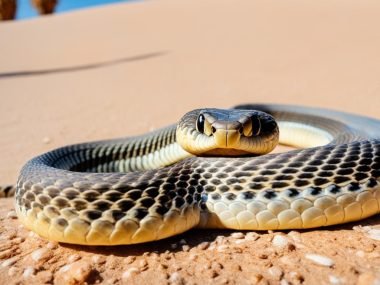Imagine stepping into Tunisia, right at the top of Africa. You’ll find a world where languages bloom like flowers in a garden. The Tunisia languages tell stories of a blended history and cultural mix. Nestled by Algeria and Libya, and kissed by the Mediterranean Sea, Tunisia is a place where the languages spoken in Tunisia are more than words. They’re the heartbeat of its identity.
At the core, you have Literary Arabic or Modern Standard Arabic, the official tongue used in schools and official papers. But the true spirit of Tunisia shines through in Tunisian Arabic—the national dialect. It’s a melody sung by Arabs, Berbers, Turks, and even carries whispers from ancient Phoenicians, Romans, and Jews. In quiet parts of the south and on Djerba island, you might still catch the ancient words of Berber.
Yet, Tunisia’s story isn’t just woven from old threads. French is still spoken, a reminder of past colonial days and Tunisia’s European ties. English and Italian are also used, connecting people across seas. With a lively population of nearly 11 million by 2014, the Tunisian language diversity colors every part of life. Exploring the many languages spoken here gives us a glimpse into Tunisia’s rich cultural tapestry.
Key Takeaways
- Literary Arabic stands as the official language of Tunisia, primarily used in formal settings.
- Tunisian Arabic, with its manifold dialects, serves as the national language and is ubiquitously spoken.
- Berber languages, though spoken by a minority, are an integral part of Tunisia’s linguistic heritage.
- French holds significant sway, reflecting Tunisia’s historical linkage with Europe, while English and Italian have important roles in international engagements.
- The question of how many languages are spoken in Tunisia opens a window into the country’s rich linguistic and cultural identity.
The Linguistic Complexity of Tunisia
Tunisia’s linguistic scene is rich and varied. It reflects a mix of languages shaped by history and different cultures. The Tunisian dialects and Berber languages show a unique blend of tradition and outside influence.
The Intersection of Ethnicities and Their Languages
In Tunisia, many ethnicities come together to form a diverse language mosaic. Arabs, Berbers, and Turks each add their own touch to the region’s dialects. This mix has created the Tunisian dialects, showing traits from Arabic and other ethnic backgrounds.
History’s Impact on Tunisia’s Linguistic Landscape
History has deeply influenced the way Tunisians speak today. From ancient Phoenician traders to French colonizers, each period added its mark. Despite Arab influence, Berber languages remain strong, especially in southern regions. This shows the enduring power of indigenous cultures.
Tunisia’s Official Language: Literary Arabic
In the heart of North Africa, Tunisia’s official languages shine. Modern Standard Arabic leads as the main language. It is essential for formal communications and the educational system.
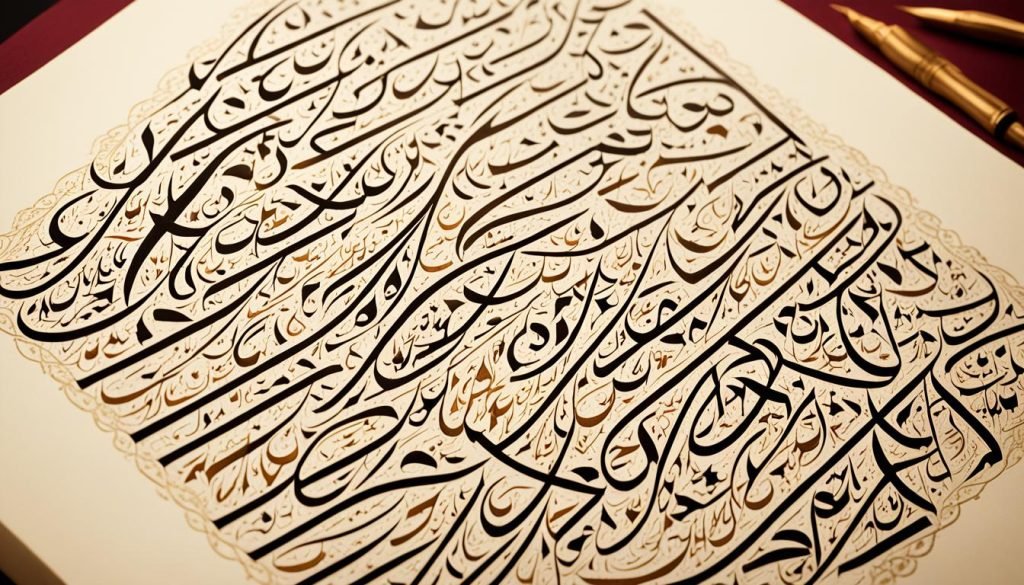
Modern Standard Arabic sticks close to classic Arabic. It keeps the language uniform across Tunisia’s many dialects. As an official language of Tunisia, it ensures people can communicate clearly in government, media, and books.
This language does more than just help in administration. It reflects Tunisia’s cultural identity. Modern Standard Arabic blends various influences. It links Tunisia’s past with its future. Understanding its role shows the complex mix of culture and language in Tunisia.
Tunisian Arabic: A Nation’s Mother Tongue
Tunisian Arabic, or Tunisian Darija, is much more than a way to talk. It shows Tunisia’s deep cultural and historical stories. This dialect is the main language for most people in Tunisia. It mixes many languages, including French, Italian, and English. This mix makes the Tunisian identity stand out.
Cultural and Historical Influences on Tunisian Dialects
The story of Tunisian Arabic is rich with Tunisia’s history. Its roots come from Phoenician, Berber, and important Arabic influences. The language has bits from African Romance and neo-Punic. Trading, conquests, and colonization spread European language traits around.
The Relationship Between Tunisian Arabic and Maltese
The link between Tunisian Arabic and Maltese is incredible. It shows deep historical ties across the Mediterranean. Maltese started from an old form of Sicilian-Arabic spoken in Malta and Italy. It also got a lot of words from Tunisian Arabic. This shows Arabic’s impact in Tunisia and beyond, sharing a centuries-old heritage.
Tunisians easily swap between languages, known as code-switching. This keeps their language variety alive in daily talks and culture. Such flexibility adds richness to conversations. It also helps keep their language heritage growing.
| Feature | Tunisian Arabic | Maltese |
|---|---|---|
| Origin | African Romance, Arabic, Phoenician | Siculo-Arabic, Tunisian Arabic influence |
| Phonology | Includes French, Italian phonemes | Retains more traditional Semitic sounds |
| Vocabulary | Rich mix of Arabic, European loanwords | Extensive use of Italian, English loans |
| Grammatical Influence | African Romance, Berber substrates | Strong Arabic grammatical structure |
Minority and Berber Languages in Tunisia
The tapestry of Tunisian culture is rich and diverse. Berber languages in Tunisia and other minority languages are central to this. They tell the story of Tunisia’s past and today’s efforts to keep its indigenous culture alive. Let’s look at who speaks these languages and how Tunisia works to protect them.
The Demography of Berber Language Speakers
In the Dahar and Khroumire areas, and on Djerba Island, Berber communities are keeping their culture alive. Though they are less than 1% of the population, their language is a key part of Tunisia’s cultural diversity. Understanding minority languages in Tunisia helps us see the country’s full cultural spectrum.
Preserving Indigenous Languages Amongst the Tunisian Berbers
To keep ancient Berber languages alive, Tunisia has started cultural and educational programs. These efforts make sure these languages stay vibrant. They are crucial for keeping Tunisian culture and education rich.
Both official and community efforts show Tunisia’s dedication to its diverse heritage. This shows the nation’s dynamic commitment to its rich traditions. It’s a sign of how vibrant and alive Tunisian society is.
French as the Prestige Language of Tunisia
The landscape of languages in Tunisia is rich and diverse. French plays a big role in this mix. It shows its importance and use in many areas, even as times change. Understanding the French language in Tunisia helps us see the big picture of languages in this country.
While France controlled Tunisia, French became deeply rooted. It spread through government and schools. This time created a group of people for whom French was very important. It mixed with local traditions and formed a high-class language culture. Though Arabic is the nation’s official language, French remains strong and widely used.
Today, about 63.6% of Tunisians can speak French. They use it in business, tech, and higher education. This shows French’s strong staying power. It also shows its key role among Tunisia’s educated and in leading fields. In schools, French is everywhere. It prepares the young to be fluent in this important language. Knowing French can open doors and raise one’s status in various areas.
French connects Tunisia with Europe and other French-speaking parts of the world. This helps Tunisia in international dealings. The language is a big plus in social, work, and cultural areas in Tunisia. It keeps its value in the country’s wide mix of languages.
- Educational influence: Predominant language in many schools and universities
- Business and media: Essential for international communication and trade
- Cultural interaction: Enhances cultural diplomacy and international relations
Discovering Tunisian society means seeing the big role French plays. It reflects history and opens doors for the future. The French language in Tunisia is a key to understanding these connections.
Other Foreign Languages: English, Italian, and German within Tunisia
Tunisia, in North Africa, is a place where many languages are spoken. The presence of languages like English, Italian, and German shows Tunisia’s strong connect with the world. These languages help Tunisians interact better and expand their influence in education and business. Walking through the busy markets and city centers, one sees how important multiple languages are here. They’re key to everyday conversations.
Education and Business: The Role of Foreign Languages
English in Tunisia is becoming very important, especially in schools and jobs. It helps locals connect with international businesses and creates new opportunities. Italian in Tunisia comes from deep historical ties and educational partnerships. It helps in exchanging ideas and growing businesses. German in Tunisia, important in fields like engineering and tech, emphasizes precision and new ideas.
Multilingualism in Tunisian Society
Being able to switch between languages like Arabic, French, English, Italian, or German is a special skill in Tunisia. This skill improves social interactions and shows Tunisia as forward-thinking in language use. This ability helps Tunisia connect with the world in many ways.
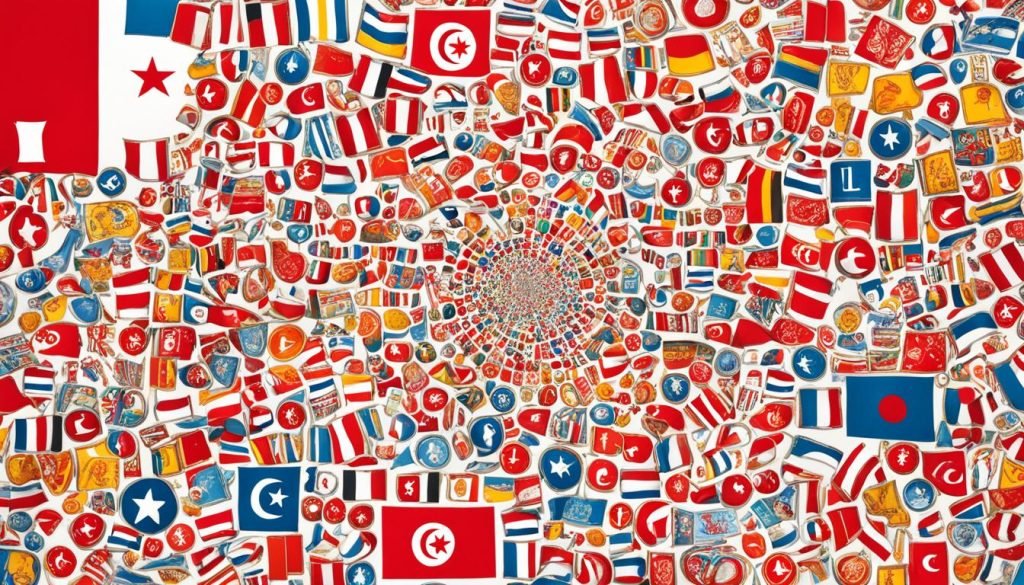
Languages also boost Tunisia’s growing tourism industry. Talking in many languages makes visitors from everywhere feel welcome. It improves the travel experience, helping tourists understand and value Tunisia’s rich history.
Having English, Italian, and German in Tunisia in schools and businesses strengthens global connections. It also adds to Tunisia’s cultural richness. This mix of languages shows how open Tunisia is to the world, ready for future changes.
Conclusion
You’ve explored Tunisia’s language scene, seeing its varied history. Literary Arabic stands as Tunisia’s official language. It links all the dialects together. These dialects are the heart of daily talk. They show Tunisia’s culture in full color.
French in Tunisia is not just a leftover from colonial days. It’s key in schools and jobs today. Also, minority languages like Berber add to Tunisia’s rich cultural tapestry. They make the country’s linguistic mix even more diverse.
This mix of languages makes Tunisia a unique place. It’s full of history yet modern. Tunisia’s many languages show a country proud of its heritage but open to the world. This balance of old and new keeps Tunisia’s culture vibrant and alive.

